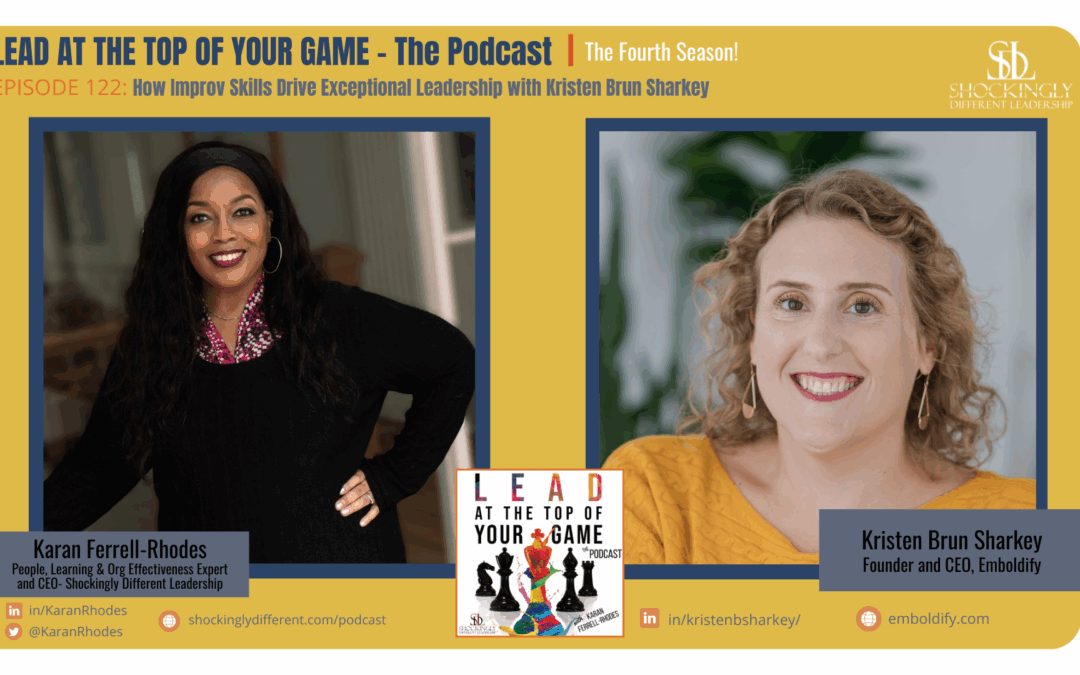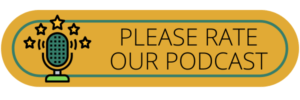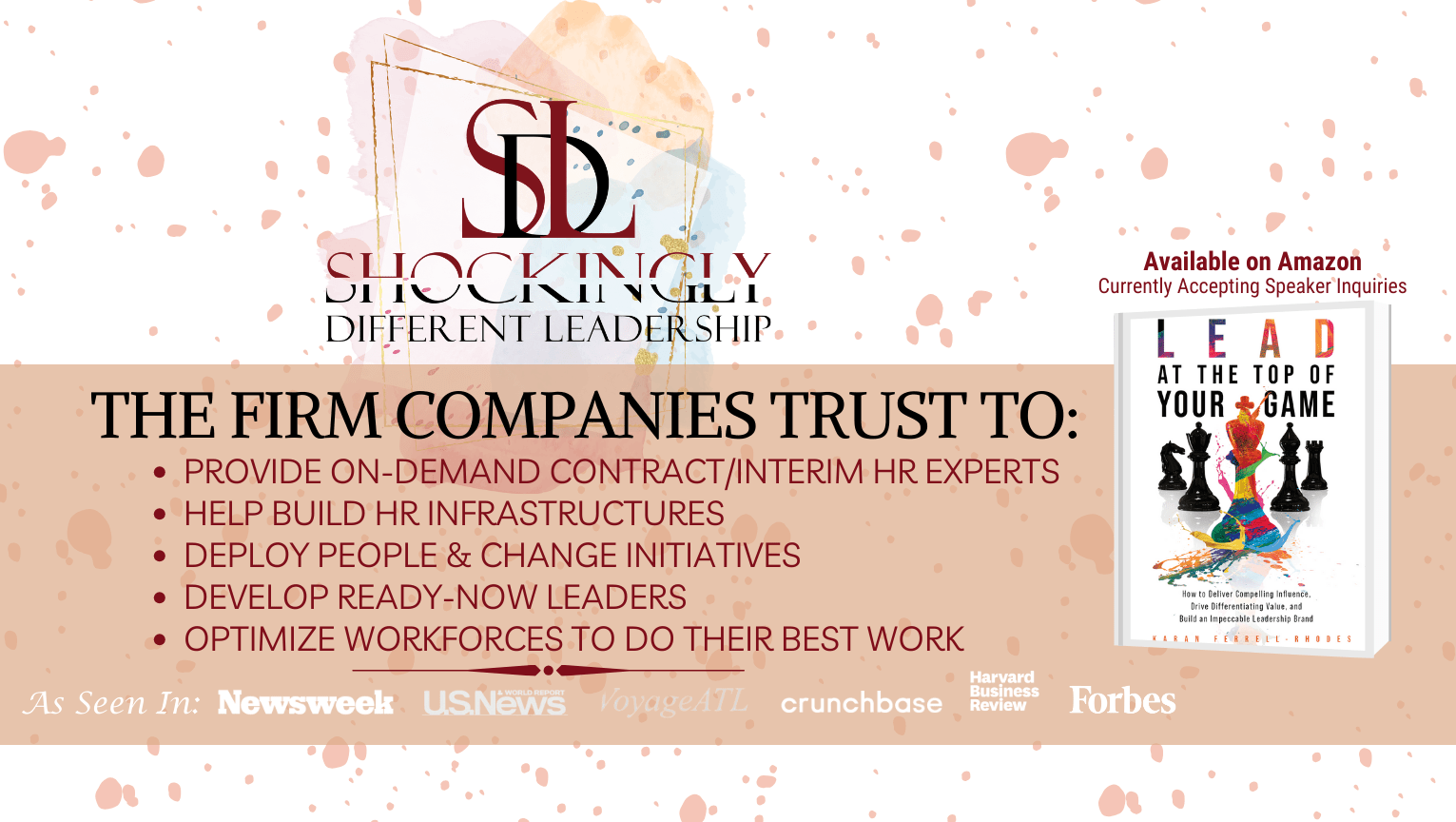IN THIS EPISODE, KARAN FERRELL-RHODES INTERVIEWS KRISTEN BRUN SHARKEY.
In this episode, Kristen explains how improv combats impostor syndrome, sharpens decision-making, and fosters innovation. She stresses the value of interactive, reflective coaching sessions and the power of courageous agility in uncertain times. Kristen also introduces her podcast, Love and Leadership, offering insights on adaptive leadership and bold, human-centered growth.
Kristen Brun Sharkey is the Founder and Executive Coach of Emboldify. She highlights how improv transformed her confidence, creativity, and collaboration skills—key elements in Emboldify’s AdLib Leader Model, which includes presence, authenticity, vulnerability, resilience, creativity, and supportiveness.
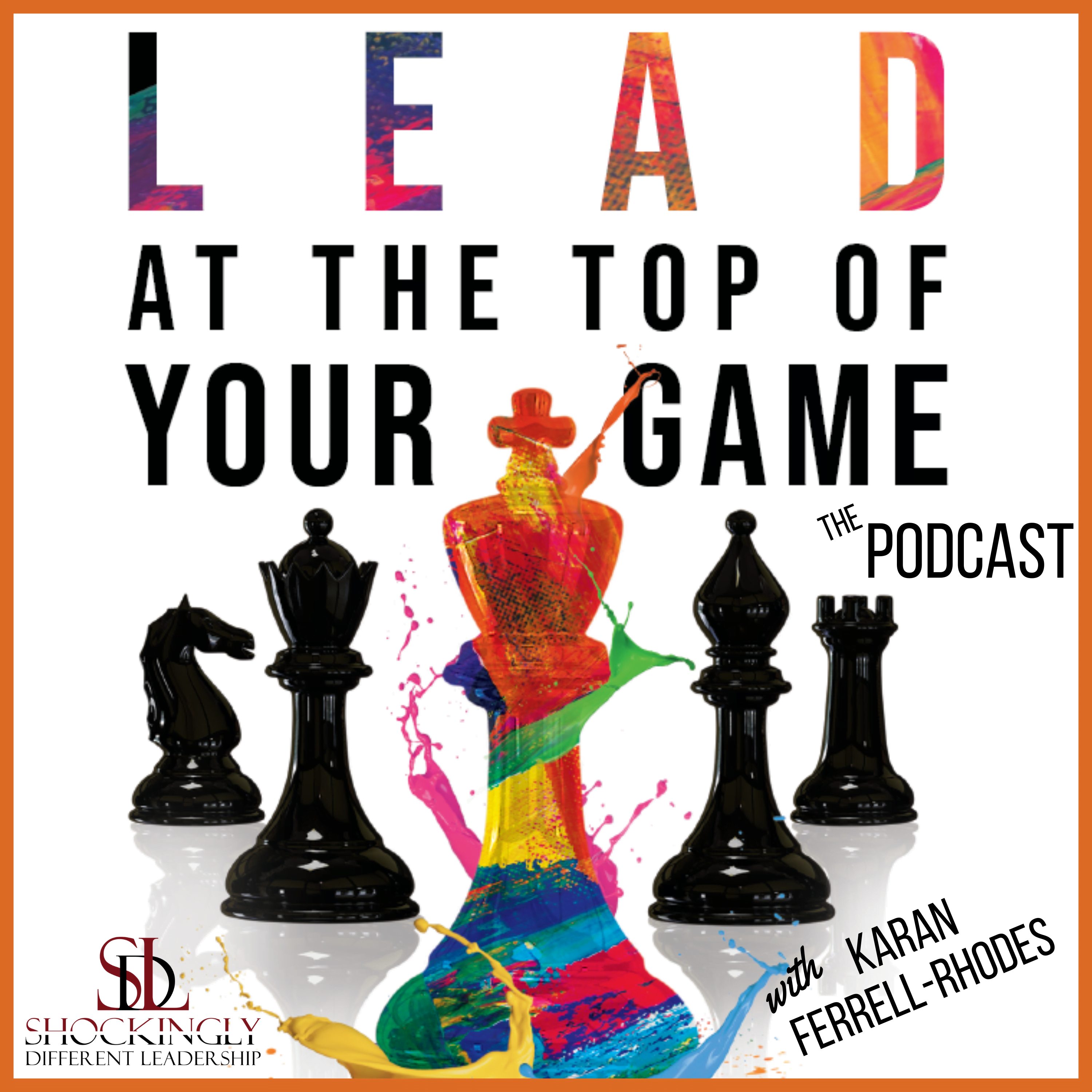
Posted by
SDL Media Team
Rather view our video podcast?

WHAT TO LISTEN FOR:
- What inspired the founding of Emboldify?
- What are the five components of the AdLib Leader Model?
- Why is presence significant in leadership?
- How are improv concepts included in workshops and coaching sessions?
- What is the role of authenticity in leadership?
- How can improv help overcome impostor syndrome?
- What is a common misconception about improv?
- How does improv support leadership during uncertainty and volatility?
“If you’re not present in the moment, you are going to miss critical things.”
FEATURED TIMESTAMPS:
[02:20] Kristen’s Background
[03:48] Founding Emboldify and Improv’s Impact
[07:42] Emboldify’s Leadership Development Model
[11:02] Practical Application of Improv in Leadership
[13:43] Signature Segment: Kristen’s entry into the LATTOYG Playbook: Impact of Improv on Leadership Challenges
[19:38] Current Leadership Challenges
[22:07] Kristen’s Podcast
[26:46] Signature Segment: Kristen’s LATTOYG Tactic of Choice: Leading with courageous agility
[26:38] Contact Information

ABOUT KRISTEN BRUN SHARKEY
Kristen Brun Sharkey previously spent 15 years leading teams in advertising tech and marketing at companies ranging from early-stage startups to Fortune 100. Today, she helps leaders advance their careers, make better decisions, execute change effectively, develop innovative solutions, and successfully engage their teams. Her unique approach combines evidence-based business and leadership frameworks with principles and skills from improvisational theatre, enabling her clients and audiences to accelerate their impact.
She also co-hosts the podcast Love and Leadership, which is available on all major podcast platforms.
LINKS FOR KRISTEN:
- Website: emboldify.com
- LinkedIn: linkedin.com/in/kristenbsharkey/
- Instagram: instagram.com/loveleaderpod/
- Kristen’s Podcast: loveandleadershippod.com/
ADDITIONAL RESOURCES FOR YOU:


Episode Sponsor
SDL is the go-to firm companies trust when needing to:
- supplement their in-house HR teams with contract or interim HR experts
- implement leadership development programs that demonstrate an immediate ROI and impact on the business

Episode 122 | How Improv Skills Drive Exceptional Leadership with Kristen Brun Sharkey
Kristen Brun Sharkey 00:03
You know, I talk about like three. There’s three levels of listening. They kind of range from the bottom of it, which is, you’re listening to respond. So everything’s just kind of being filtered through, “What does this mean for me? How am I going to respond to this?” That’s like the level most of us listen at by default. And then going up to the third level, which is immersive listening, which is, you’re actually really listening to understand what the other person’s perspective and feelings are, and you’re really taking yourself fully out of the equation.
Voiceover 00:05
Welcome to the “Lead at the Top of Your Game” podcast, where we equip you to more effectively lead your seat at any employer, business, or industry in which you choose to play. Each week, we help you sharpen your leadership acumen by cracking open the playbooks of dynamic leaders who are doing big things in their professional endeavors. And now, your host, leadership tactics, and organizational development expert, Karan Ferrell-Rhodes.
Karan Rhodes 00:36
hello, superstars. This is Karan, and welcome to another episode of the lead at the top of your game podcast, we have a fantastic guest for you today who is Miss Kristen Braun Sharkey. Say I said her name correctly, but she is the founder and CEO of embolify and emboldefi is a leadership development and coaching firm that harnesses improv principles, which I love, improv to empower leaders and their teams. She’s also the creator of the ad lib leader model, and she also co hosts a podcast called Love in leadership. I cannot wait to hear more about her story, but welcome to the podcast. Kristen,
Kristen Brun Sharkey 01:21
Thank you. I’m so excited to be here.
Karan Rhodes 01:23
Oh, that is awesome. Well, I can’t wait to delve deeper into your background and your your thoughts on, you know, using improv to grow leadership skills. But before we go there, we’d love to learn just a tad bit about you personally. So for just as much as you feel comfortable, would you mind giving us a sneak peek into your life outside of work?
Kristen Brun Sharkey 01:48
Yeah, for sure. So I live in the San Francisco Bay Area with my husband, who’s also my podcast co host, and our two cats, and we also have a baby on the way. So yeah, and I also, I would say my primary hobby does kind of bleed into the work stuff, which is improv. But in addition to it being a central part of the work I do, I also really enjoy performing, and I have a group that I perform regularly with in San Francisco, so
Karan Rhodes 02:20
Really? Impressive. Impressive. Well, I can’t say I’m a performer, but, you know, I love to run my mouth, very chatty. And you know what? I did take a few improv classes, because back when I was at Microsoft and we had our global hypo program, high potential leadership program, we used improv as some of the curriculum and what we did and so, and we’ve used it at, you know, many leader conferences or off sites and things like that. So I do understand the power and value it, and I can’t wait to talk more about it, uh, while we chat, awesome. And congratulations on expanding your family. That’s so exciting. Thank you. Yeah, so let’s start out, Chris, if you don’t mind, if you can share kind of at a high level your professional journey and then how it led you to founding and Emboldify.
Kristen Brun Sharkey 03:16
Yeah, absolutely. So my career really started in marketing at a market marketing, marketing agency, and then kind of moved more into the advertising tech side of things. So I spent about 15 years in those industries, very common in the San Francisco Bay Area. Of course, it’s sure tech driven here, but the last company that I worked for before going on my own, was Yahoo, which was also Verizon for a while. Went through many iterations, but I led various teams, like, kind of various functions throughout that time. I had my first manager role when I was, like, a year and a half out of college and had no idea what I was doing. So it kind of gave me some clues to that that led to me started my own business. But I I’ve always really enjoyed the kind of coaching side of leadership, and done a lot of facilitation from pretty relatively early my career as well. And I knew I enjoyed that. So those were kind of clues for me as to what I might want to do longer term, outside of just like the the ad tech space and the final puzzle piece really came when I started doing improv. Maybe it’s about eight years ago now. And for one thing, I just loved it so much. It was really fun. It had a great community, so I wasn’t even really thinking about the benefits of it at first, but then there was some point where I was looking back and I could just see how much it was helping me, both in my personal life and at work, because it helped grow my confidence, my creativity, my collaboration. So that was really the final puzzle piece for me. And then when the timing was right, a couple, about two, two and a. Years ago, I started my own leadership development company, and I’ve been doing that since.
Karan Rhodes 05:05
Oh, well, congratulations on the launch and success of your firm thus far. And like I said, I truly do know the value in and sometimes people are very hesitant to go through improv classes, or are those exercises that are infused in whatever you’re teaching. But I always say, give it a try, because once you you try it, you it unlocks things that you did not know that or talents you did not know you had. And to your point, it does raise your confidence quite a bit, because it’s a safe space to experiment. Experiment, I’m sorry, and be creative. So I love that.
Kristen Brun Sharkey 05:42
Absolutely. Yeah, I always have to give disclaimers at the beginning of workshop. It’s like, I’m not going to put you on the spot and make
Karan Rhodes 05:49
‘Cause they’re, like, one foot out the door right when they figure on…
Kristen Brun Sharkey 05:54
It’s okay. You’re going to be in small groups, it’s going to be fine. I promise it’s not as scary as it sounds.
Karan Rhodes 06:00
So what types of companies do you target, or seem to be naturally drawn to, the type of work and services that you offer?
Kristen Brun Sharkey 06:10
Yeah, I mean, that’s a good question, because it’s kind of changed throughout my business. I when I originally started it, I thought I was going to be working mostly with tech companies, because at the time, that’s where, you know, that’s where my network was. That’s where the learning and development budgets were. And I started my business basically right when all the mass layoffs started. So I was like, Okay, well, maybe I need to pivot a little bit. So I’ve actually worked. I mean, I do work with tech companies as well, but I’ve worked across a lot of industries at this point for both coaching and facilitation, including ones that I really had no exposure to previously, and I found it really applies across industries, which is really fun,
Karan Rhodes 06:53
That is awesome, and so let’s talk a little bit more about your model, because I really want people to kind of understand that at a concept level, and then maybe give an example of a experience or how it does help people grow their confidence and leadership skills.
Kristen Brun Sharkey 07:10
Yeah, absolutely. So the ad lib leader model, there’s five components of it, so the one at the center is presence. And I think it’s kind of funny that we we use the word presence for being present, but it’s also used with like executive or leadership presence. So I like to say that, like, leadership presence starts with being present, because that’s really the foundation of everything with improv. If you’re not present in the moment, you’re if you’re not listening, you’re gonna miss really critical things. If you’re too much in your head and not focusing on the moment, like it all just kind of falls apart. So and I think that the same goes for leadership. I think being present is highly underrated, especially in the world where, you know technology today, like we’re so used to our attention being split in so many ways, and it when our brains are not necessarily trained to sit and be present with somebody, but it’s so powerful as a leader when when you do that. So that’s really the the core of it. And then the other areas are authenticity. So a lot of this is around, like trusting your instincts. That’s something you have to learn to do at improv, because you don’t have time to over analyze everything in your head. You just have to take action. Vulnerability also goes along with that. And then the third one is resilience. So this is where a lot of the like adaptivity comes in. And I, one of the things I talk a lot about within this is, how can you create a culture of innovation? Yeah, and, like, what are the components for that? And a lot of it comes with embracing failure, which is something we’re also most of us are not naturally great at, no, but it’s included, yeah, so that’s a big part of it. And then also for like, the fourth component, which is creativity. It’s like creating those, those safe spaces for the divergent thinking, which is the actual idea generation and encouraging play. And then the final one is supportiveness, because you know the, if you know anything about improv, you might have heard of the concept of yes and…
Karan Rhodes 09:27
Oh, I say it all the time,
Kristen Brun Sharkey 09:30
as many, many applications, yeah. But for those who are not familiar, there’s two components of it, right? Like this is basically the foundation of improv. You have the Yes, which is your your validating and agreeing with what’s been offered, and then the and which is you’re adding in your own contribution to it. And it’s incredibly powerful, and it’s because it’s so important to improv, it really like feeds into this overall supportiveness and knowing. You know when making the other person look good and knowing when to lead and when to follow, are all big pieces of that. So, so yeah, those are the five components of the model.
Karan Rhodes 10:10
Amazing. Now I’m curious, how do you I’m assuming, in your your workshops, or when you’re coaching, you’ll go over the concepts. But how do you infuse it to help them actually make it real for them in their, you know, job roles or in their position?
Kristen Brun Sharkey 10:31
Yeah, for sure, yeah. I mean, I think there’s in any kind of, like, improv based workshop, there’s always a good, I like to have a learning component. So kind of talking about, like, what are these concepts, and how do they actually apply to the workplace and to leadership? And then, like, the interactive exercise portion of it, where they’re actually doing some of these exercises that really emphasize these concepts, so they put it into practice. And then there’s also, like, a reflection component of it. So I’m understanding what does this mean and how does this apply to the workplace, but it’s always a best case. I think when you know, you can do a lot with a two hour training session, but it’s always the best case. When you have, you know, a series of sessions or incorporate coaching, so you can really make sure that the the concepts are are being applied.
Karan Rhodes 11:20
Because they need to practice them right, to become more and more confident in them? So
Kristen Brun Sharkey 11:25
For sure.
Karan Rhodes 11:26
Yeah, I’m curious. Out of all of the components, is there one that people seem to struggle with the most that you’ve seen that trend in general, I hate the stereotype, but in general?
Kristen Brun Sharkey 11:36
That’s a good question. I mean, I think it’s probably, I think the one that really hits people the most is the presence part, and especially around listening, because we are really not taught how to listen.
Karan Rhodes 11:49
Not in the American culture anyway, maybe it’s better overseas
Kristen Brun Sharkey 11:54
Yeah, it’s really not a big part of our culture. So it’s something, you know, I talk about like three. There’s three levels of listening. They kind of range from the bottom of it, which is, you’re listening to respond. So everything’s just kind of being filtered through. What does this mean for me? How am I going to respond to this? That’s like the level most of us listen at by default, and then going up to the third level, which is immersive listening, which is you’re actually really listening to understand what the other person’s perspective and feelings are, and you’re really taking yourself fully out of the equation. So that that usually is something where people are like, Oh, I’m just not doing much of that. I’d always, I always get a lot of response to talking about like the listening and the presence piece, and it’s because it’s something we all have room to improve upon.
Karan Rhodes 12:49
Well, you know, a lot of our listeners love, you know, stories and how you apply them, and we always try to give them kind of some insights and a tip. So can you maybe share a specific example where people use improv, but it made a significant difference in the way they either acted or in the outcome of what they were tackling at the moment.
Kristen Brun Sharkey 13:11
Yeah. So I think one area where I’ve seen improvements in a lot of the people I’ve worked with and also people I’ve just done improv with, is around imposter syndrome, oh yeah, because it really helps with that. That inner judge. I have one of my like past improv teachers would call it like yoga for the inner, inner judge, right? Because it’s it really like forces you to confront that voice that’s getting in the way. And that voice is not necessarily bad, right? Like our inner judge exists for our survival, it’s trying to help us find situations that could lead to us, you know, being alienated by from our community, or all these other situations that could lead to our death, right? So it’s not like inherently bad, it’s just part of our brain evolution. But there’s a lot of power in doing a practice that regularly just kind of forces you to put that aside and just take action, and that can have a tremendous impact on on someone’s imposter syndrome, because the more you do that, the more you learn to trust your instincts, and the more you learn that you can trust yourself to just do things without overthinking them and without your inner judge like ripping you apart and questioning like, what are you doing here? You don’t belong here, right? Right? So that’s one of the areas I I’ve seen it make a big impact with people I’ve worked with over time.
Karan Rhodes 14:43
I can see that definitely, and I can also see it, and you can tell me if I’m wrong, I can see it helping, especially more advanced level leaders deal with analysis paralysis, you know, because they have so much data and information and requests. Coming into them from all over the place, and I’m curious if you’ve seen it help them get through analysis paralysis and be kind of more spontaneous in their decision making. Or have you not witnessed it having any impact?
Kristen Brun Sharkey 15:15
No, I definitely see that’s in an area where it can make a big impact, because and also just like decision making in general. I think most of us like there’s two types of thinking. There’s divergent thinking, which is the actual idea generation, and then there’s convergent thinking, which is when you’re analyzing those ideas and kind of narrowing them down to a specific solution. And our workplace is really designed for convergent thinking, and that is what we tend to jump to. And so often that idea generation part is skipped over. And a lot of times there’s a more, like a much better solution that’s being missed because we’re so in that analysis, like part of things, right? So a lot of that kind of fits into the work when in terms of learning how to create spaces for separate spaces, for the divergent thinking. Because even though it’s it seems counterintuitive to do that when you just already have so much in your plate, like that’s where you get to the solutions that are really going to make the biggest impact.
Karan Rhodes 16:20
Absolutely. And because I do have experience in running Design Thinking workshops and hackathons and things like that, it doesn’t have to take, you know, a month to do it right. You can do that type of thinking in a very short period of time and have some amazing ideas
Kristen Brun Sharkey 16:37
For sure
Karan Rhodes 16:38
Ummm…coming out of that.
Kristen Brun Sharkey 16:39
The key is you just need to, like, allow a dedicated, separate space word, because if you allow them to mix, the conversion, thinking will always win.
Karan Rhodes 16:48
Always.
Kristen Brun Sharkey 16:48
I think we’ve all been in the brainstorms where it’s like, there’s no bad ideas. And then you, you get five minutes in and somebody starts questioning one of the ideas that comes up, and it’s just
Karan Rhodes 16:57
Right,
Kristen Brun Sharkey 16:58
The like, generative, divergent thinking is just gone at that point, it will
Karan Rhodes 17:02
It is. You’ve gotta carve out that space and not let anything into that space, right?
Kristen Brun Sharkey 17:08
Takes discipline.
Karan Rhodes 17:10
It does a lot of, which sometimes I have and sometimes I don’t, to be honest,
Karan Rhodes 17:15
I mean, yeah.,
Karan Rhodes 17:16
But I know the importance of it, having taught it, you know, I’m curious. You know, what is one of the biggest misconceptions people have about improv, using improv in develop? In your opinion?
Kristen Brun Sharkey 17:27
Yeah, I think the one of the biggest things I encounter is people associate it with comedy and as like a linear connection, which, you know, it’s not that is a component of improv, but there’s a lot of different types of improv, and there’s also, like, great improv doesn’t necessarily need to be funny, and there’s a lot of components to and lot of benefits of improv that go beyond just the the comedy part of it. And I think that also causes a lot of people to exclude themselves from it, because they’re like, Oh, I’m not, like, a funny person. So why would I do this? And there’s so much more to it, I think the the things that are funny are tend to mean the more organic things that come from developing improv skills, and often are mistakes. Honestly, mistakes are like, the funniest things that often that happen, versus, if you have somebody coming in with, like, oh, like, I have to be funny, and they’re trying to force it to be funny, yeah, the stuff that’s not funny. So I think a lot of that’s, that’s probably one of the biggest misconceptions, is kind of helping people understand, no, this isn’t just about being funny. Like, there’s organic comedy that will come out of this, but it really starts with, like, the core foundations, and then you go from there.
Karan Rhodes 18:45
No, that makes a lot of sense, yeah. Noting that you’re also a coach, and I’m assuming you do both one on one coaching, as well as group coaching?
Kristen Brun Sharkey 18:54
Yeah. And team coaching, okay, yeah.
Karan Rhodes 18:56
Y ou know, what aresome of the more common leadership challenges that you’re seeing or trends that really pop a lot in the conversations?
Kristen Brun Sharkey 19:06
Yeah, I mean, it’s so interesting right now, because I feel like there’s uncertainty as just flitting through everything right now. And you know, there’s so many people who are afraid for their jobs that, you know, 5, 10, years ago, that was not a thing. And so I think that learning how to, you know, like, lead effectively in this period of extreme uncertainty and volatility, like VUCA, right?
Karan Rhodes 19:33
Yeah,
Kristen Brun Sharkey 19:34
Like, it’s definitely the theme right now. And I think that’s actually where one of the areas where improv really excels, fortunately, is like teaching you how to take action and trust your instincts and not let yourself get paralyzed by uncertainty. But it is definitely in the atmosphere and definitely in. Impacting teams across many industries right now.
Karan Rhodes 20:03
Yeah,. It absolutely is. I’m seeing it in our clients as well. It’s, you know, we do have global clients, so it’s not just in the States. It’s kind of all over the world that are kind of feeling that they’re treading in uncertain waters, if you will, and trying to see how things will shake out. Because, you know, in general, human beings are pretty resilient and making change. But when you’re not sure what’s around the corner, you know, folks get, you know, very antsy. And to your point, at this point in time, a lot of organizations are rethinking how they’re doing business. You know, there’s quite a few realignments and reductions or and so it’s just unstable, I think is a good word that’s out there for the world of work right now. Do you agree
Kristen Brun Sharkey 20:49
Absolutely? Yeah, and that, and that’s just the reality right now. So it’s like, how do you and you used to that. It used to be like, there I worked in tech. I’ve been through multiple rounds of layoffs. But it used to be like, more like, oh, there’s a round coming up, and kind of everybody knows about it, and then it’s done, and then you kind of move on for the next year. But now I feel like there’s, there’s not predictable cycles. Are people just people are just feeling like, very unsafe, yes, a lot of ways, so that really bleeds into leadership. Like, how do you effectively lead a team when that’s the atmosphere?
Karan Rhodes 21:28
Yeah, you’re absolutely right. Would you mind, Kristen, and sharing a little bit about your podcast with our listeners? Yeah,
Kristen Brun Sharkey 21:36
I would love to. So I host a podcast called Love and Leadership, and I co host it with my husband, who is a has a background in like hospitality. He’s an executive director at a senior living community. So I come from more like the tech and marketing side, and he has more like the hospitality service industry side. So we come at it from different perspectives, which is really fun, but we both are total leadership nerds and love to read leadership books, so that’s kind of the foundation. And we have a few different episode formats. We do episodes on specific topics. We do book club like leadership book club episodes where we break down, like, like, mostly pretty popular, but sometimes just some of our favorites that people are less familiar with. And then we also do guest interviews as part of that as well.
Karan Rhodes 22:29
What a nice mix. Well, I, you know, I haven’t cracked the code yet on how to collaborate with the the honeydew, so might have to take notes from you from you about that such different work styles, but to your point about listening, I’m a chatterbox. I would probably… he’s more reserved, and so I probably would take over, I guess. Anyway, so
Kristen Brun Sharkey 22:54
Yea, we definitely have a dynamic. I’m usually the one who’s kind of keeping us on track,
Karan Rhodes 22:58
You’ve been very engaging as well. So that’s so interesting.
Kristen Brun Sharkey 23:09
It’s a good balance.
Karan Rhodes 23:10
Is it? That’s nice, that’s nice. Well, reason we cannot let you leave out without asking you our signature question that we always ask our guests and for my newer listeners, you may or may not be aware of it, our firm did some global research on high potential leaders in organizations, and when out of that research came seven buckets that of activities or tactics that almost all high potential leaders And organizations, no matter, your industry always executed at some point or another. And so Kristen was so kind to share that courageous agility, but you so kind to share that courageous agility really popped for you. So for those who are not aware, courageous agility is all about having the courage and the fortitude to take calculated risk and to stand up for what you believe in and but still move forward, even if the future is uncertain or unclear. So curious minds would love to know Kristen, why courageous agility really popped for you?
Kristen Brun Sharkey 24:15
Yeah, I mean, I think it’s really reflects the heart of, like, my leadership philosophy and the work that I do with integrating improv, because I love that you have both that component of like courageous company name is embolden five
Karan Rhodes 24:30
I know! It’s right in alignment.
Kristen Brun Sharkey 24:33
Yeah, so like taking bold actions or making bold choices, is such a core of improv and being agile, like being adaptive and learning to excel in a situation where there’s always uncertainty, right? Because when you’re with improv, you’re performing on stage and everything’s made up, you never know what’s going to happen next. So it kind of teaches you to like thrive in that type of environment. These are areas. That I think apply so well to leadership and are can be really difficult to do like it can be hard to take action when it’s easier to you know, just just let things go right and navigating like difficult situations, but that ability to take clear action during times of uncertainty is everything.
Karan Rhodes 25:24
It is everything, even if you have to take baby steps because you’re so uncertain, it’s just that forward progress of movement that is so key, because hopefully eventually you’ll gain insight on you know how to take the next baby step, right? So I totally understand. Well, thank you so much for sharing, Kristen and now we will have in our show notes. Of course, your bio links everything so that people can take a closer look of what you do, where to find you and to get more information. But I always like to give air time to guests as well. So would you mind sharing if people want to know more about embolify or and or you and the great work you’re doing. Where can they find you?
Kristen Brun Sharkey 26:07
Yeah, absolutely. So there’s a few places my like business. Website is embolify.com, and I’m most active on LinkedIn in general, under Kristen Brun Sharkey. I’m the only one with that combination of names. And as far as our podcast goes, we,our website is loveandleadershippod.com and you can find Love and Leadership on wherever you get your podcasts,
Karan Rhodes 26:33
Wherever you’re there, you and your hub you’re there. Well, fantastic. Well, Kristen, thank you so much for the gift of your time today. You know, I wrote quite a few notes myself as we were talking that I wanted to make sure my team captured them all for our show notes, and because you shared so many areas of focus that people can look to to help empower themselves or their team. So I’m hoping that the listeners will reach out as they’re considering additional development opportunities for their staffs. So thank you so much for coming today.
Kristen Brun Sharkey 27:09
Amazing. Thank you so much for having me. I really enjoyed our conversation.
Karan Rhodes 27:12
Same here, same here. And thank you to listeners for joining us today, as well. As I always say there are literally millions of other podcasts you could be listening to, and we do not take your patronage lightly. All that we ask is that you like and subscribe to our podcast and also take a look at Kristen’s as well on your favorite podcast platform of choice, because we’re everywhere as well. And the last thing that we ask is that you share our podcast with just one friend, because by doing so, it’ll help us all to better lead at the top of our games. Thank you so much again for joining us and see you next week. And that’s our show for today. Thank you for listening to the lead at the top of your game podcast, where we help you lead your seat at any employer, business, or industry in which you choose to play. You can check out the show notes, additional episodes, and bonus resources, and also submit guest recommendations on our website at leadyourgamepodcast.com. You can follow me on Twitter, Facebook, Instagram, and LinkedIn by searching for the name Karan Rhodes with Karan being spelled K a r a n. And if you like the show, the greatest gift you can give would be to subscribe and leave a rating on your podcast platform of choice. This podcast has been a production of Shockingly Different Leadership, a global consultancy which helps organizations execute their people, talent development, and organizational effectiveness initiatives on an on-demand, project, or contract basis. Huge thanks to our production and editing team for a job well done. Goodbye for now.

Want to be a Podcast Guest?
Check out our guest qualifications and submit our brief form to be considered.
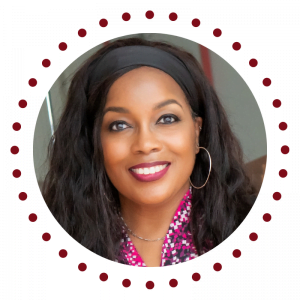
Want Karan to be Your Podcast Guest?
- Blended Workforces & the Gig Economy
- Critical Execution Tactics of High-performing Leaders
- Entrepreneurism & Leading Your Business

Want to be a Podcast Sponsor?
All sponsorships come with a featured spot on show notes pages.
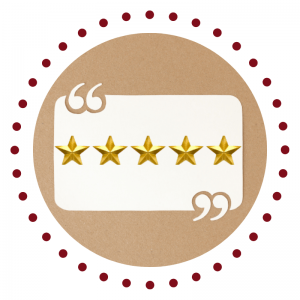
Like the Show? Please Leave a Review
If you like the show, it would mean the world to her if you left a quick review.
Your word is golden, so a HUGE thank you in advance!

#KeepInTouch
via our podcast alerts
Subscribe now to discover why thousands of monthly listeners who are passionate about doing their best work prioritize time each week to listen to the Blended Workforces @Work podcast.
#AboutSDL
#WhereToFindUs
MAILING
4480-H South Cobb Drive
PMB 219
Smyrna, GA 30080
PHYSICAL
2121 NewMarket Parkway
Ste. 108
Marietta, GA 30067
#ContactOptions
Customer Service Email:
service@shockinglydifferent.com
Call or Text:
770-384-1103
#Office Hours
MON-FRI
8:30 AM – 6:30 PM
Weekends By Appointment

